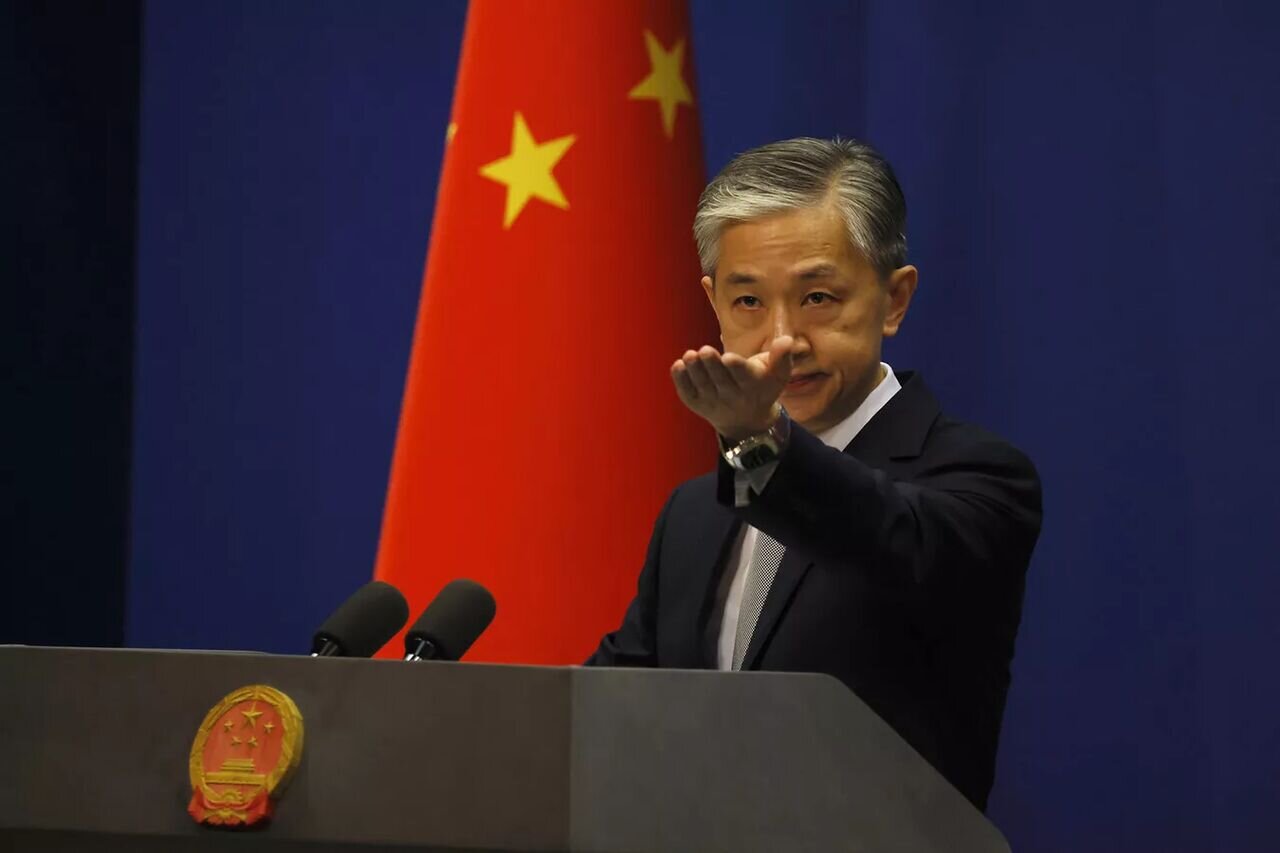China says to continue working on JCPOA

TEHRAN – Chinese Foreign Ministry spokesperson Wang Wenbin has criticized the U.S. for withdrawing from the 2015 Iran nuclear deal, saying that Beijing will continue to work toward resolving issues related to the tattered deal.
The remarks come amid stalled talks over reviving the deal, officially knowns as the Joint Comprehensive Plan of Action (JCPOA).
“The reason for the current situation surrounding Iran's nuclear issue is that the United States unilaterally withdrew from the JCPOA and put Iran under the most severe pressure,” Wenbin said at a regular press conference on Friday, according to IRNA.
He stated that the nature of UN Security Council Resolution 2231 is the implementation of the JCPOA and emphasized that Iran has taken appropriate countermeasures.
“The current priority of the relevant parties is to restore the full and effective implementation of the JCPOA through dialogue and negotiation,” the spokesperson continued.
The diplomat also pointed out the importance of preventing any action that would lead to the escalation of the situation and the exacerbation of contradictions, in order to create conditions for diplomatic efforts.
“China will continue to interact and coordinate with the relevant parties, help to quickly return the JCPOA to the right track, maintain the authority and effectiveness of Security Council Resolution 2231, and advance the political-diplomatic settlement of the Iran nuclear issue,” Wenbin said.
The remarks come after the UN Security Council held a meeting on the implementation of UN Security Council 2231 on Thursday with the participation of Ukraine. This is while the meeting was supposed to be held in June when the United Arab Emirates was the president of the Council. The meeting was postponed and ultimately held in July, when the Council’s presidency is assigned to the UK.
In the Thursday meeting, Russia and the U.S. clashed over Iran and Ukraine. Also, the UN political affairs chief Rosemary DiCarlo told the meeting that diplomacy is the only way to effectively address the Iranian nuclear issue.
The Under-Secretary-General for Political and Peacebuilding Affairs regretted that negotiations to restore the JCPOA remain stalled even though all participants, including the U.S., have reaffirmed that “a return to the full and effective implementation of the Plan” was the only viable option.
She reiterated the Secretary-General’s appeal to the U.S. to lift or waive its sanctions and to extend waivers regarding the trade in oil with Iran.
The UK, France, and Germany put out a joint statement to the media after the UK-chaired session on Iran's implementation of Resolution 2231.
They leveled a bunch of accusations against Iran, including violation of the JCPOA, which is endorsed by Resolution 2231. “Iran has been in violation of its nuclear commitments under the Joint Comprehensive Plan of Action (JCPOA), endorsed by Resolution 2231, for more than four years and its nuclear program has escalated to dangerous levels. This is of utmost concern for international peace and security,” they claimed.
Meanwhile, Iran criticized the UK for inviting Ukraine to the meeting. “We would like to state our position clearly and on the record regarding the participation of the representative of the Republic of Ukraine in today's meeting, under the agenda item of non-proliferation, and focusing on the implementation of the Joint Comprehensive Plan of Action (JCPOA),” Saied Iravani, Iran’s ambassador to the UN, said.
“We strongly object to the Presidency of the Council extending an invitation to a member state that has no direct or indirect relevance to the agenda item of this meeting. We perceive this action as neither constructive nor in good faith. Instead, it appears to be a cynical attempt to divert attention from the pressing matter at hand—the implementation of the JCPOA—and the failure of certain Western parties to fulfill their obligations under the agreement,” he added.
Iravani noted, “Let me make it clear: This meeting and Resolution 2231 (2015), have absolutely no connection to the conflict in Ukraine. The invitation extended to the representative of Ukraine for this meeting represents an abuse of the process and a misuse of the Council's presidency, serving the political agendas of certain states. Moreover, this action flagrantly contradicts established practices of the Council and its provisional rules of procedure and runs counter to the principles outlined in the UN Charter.”
Leave a Comment